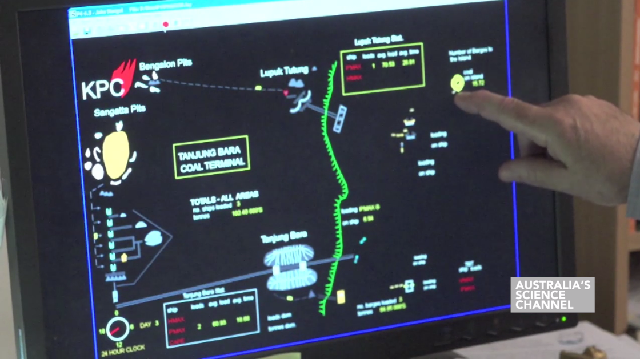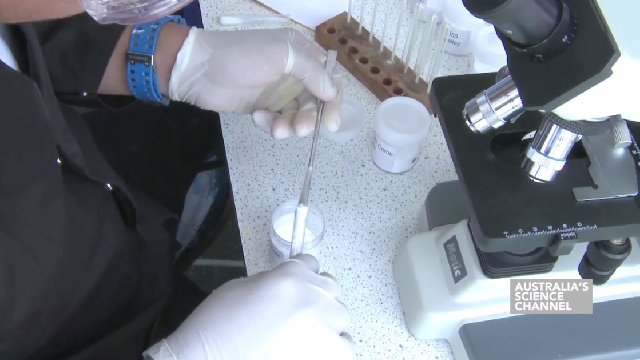Last updated February 27, 2018 at 2:02 pm
A US study suggests that people will react positively to news of extra-terrestrial life
An artist’s impression of the first interstellar asteroid Oumuamua. Credit: NASA
Scientists around the world are searching the universe for signs of life. There has been occasional encouragement with the discovery of several planets with conditions that could support life.
But the question has always been – if we discover life with origins not on Earth, how will people react?
Will it be excitement?
Fear?
Ambivalence?
According to a new study by researchers at Arizona State University, people would be pretty positive about it.
“If we came face to face with life outside of Earth, we would actually be pretty upbeat about it,” said Arizona State University Assistant Professor of Psychology Michael Varnum. “So far, there’s been a lot of speculation about how we might respond to this kind of news, but until now, almost no systematic empirical research.”
Testing people’s reaction to the unknown
The research team began started by examining the language used in media reports of previous potential extra-terrestrial life discoveries. A large part of the public reaction will be dictated by the tone of reporting, giving the media influence over the global response.
An artist’s impression of an exoplanet in the TRAPPIST-1 system, which may support life. Credit: NASA/JPL-Caltech
Using software that quantified emotions, feelings, drives and other psychological states in written texts, the team studied articles reporting the 1996 discovery of possibly fossilised extra-terrestrial Martian microbes; the 2015 discovery of periodic dimming around Tabby’s Star (which media reported could be an artificially constructed “Dyson sphere); and the 2017 discovery of Earth-like exoplanets in the habitable zone of a star.
The media reports studied in general used language that showed significantly more positive than negative emotions.
Next, the researchers asked 500 participants write their own hypothetical reactions, and humanity’s hypothetical reaction, to an announcement that microbial life had been discovered on another planet.
While hypothetical, where people might be more likely to be optimistic, more positive than negative emotions where used, both when talking personally and as humanity as a whole.
Related: Have we been looking for life on other planets the wrong way?
“I would have some excitement about the news,” one participant said. “It would be exciting even if it was a primitive form.”
In a third test combining elements of the first two experiments, the researchers gathered a different group of 500 people and asked them to write their reactions to media reports of two different scientific discoveries.
The participants were divided into two groups. The first group read a past article from The New York Times describing possible evidence of ancient microbial life on a Mars meteorite. The second group read an article from the Times describing the claimed creation of synthetic human made life created in the lab.
The reactions to the news reports of extra-terrestrial microbial life again used significantly more positive than negative emotions. In fact, the reactions were more strongly positive regarding the news about extra-terrestrial life than the human made synthetic life.
“This discovery shows that other planets have the ability to have life on them,” a participant said. “It’s a very interesting and exciting finding that could be only the beginning.”
A positive future?
It could be expected that people may react different to the announcement of microbial life versus the (albeit much more unlikely) discovery of intelligent life. However, in unpublished results, the team found evidence of more positive than negative emotions in response to media speculation that the interstellar Oumuamua asteroid might actually be a spaceship. Again this suggests that we may also react positively to the news of the discovery of evidence of intelligent life from elsewhere in the universe.
While the findings do suggest that people will be generally positive to the news of extra-terrestrial life, it’s not a definitive answer on what to expect.
Evidence suggests people tend to generally use more positive words than negative, so analysing language may be slightly misleading.
The studies also only involved Americans, however the global reaction might differ depending on culture. According to psychologists not involved in the study, Americans tend to view alien life in a black or white way – either the discovery is all good or all bad. People in China however, for example, were more likely to consider that contact would lead to both risks and benefits. The differences in culture could produce vastly different responses across the globe.
There is also the question of ambiguity among the science community, and how that could be communicated and affect the public response. Even if evidence was found of extra-terrestrial life, it would take numerous follow-up studies to confirm its extra-terrestrial origins and rule out Earth-bound sources. Short of finding immediately irrefutable proof (such as a living or deceased complex organism), it could take a long period of uncertainty before alien life could be conclusively proven.
Nevertheless, the results do give hope for future discoveries.
“Taken together, this suggests if we find out we’re not alone, we’ll take the news rather well,” Varnum concluded.
The study has been published in Frontiers in Psychology





























































































































































































































































































































































































































































































